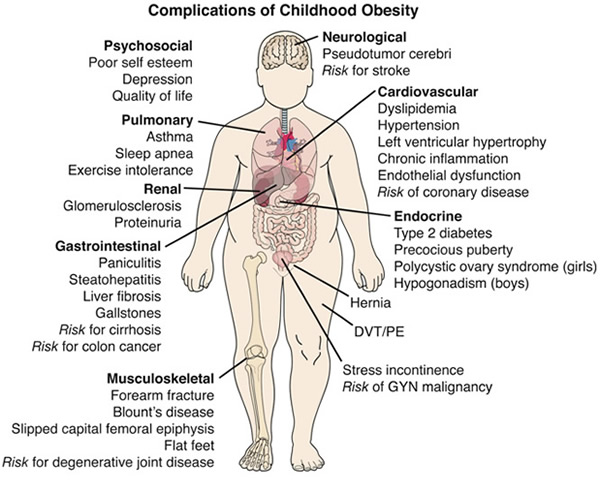
The European Union’s highest court ruled Thursday that obesity can be considered a “disability” if it hinders an overweight person’s performance at work.
The European Court of Justice had been asked by a Danish court to consider the case of a child minder in Denmark who said he was fired four years ago because he is obese.
The employee, Karsten Kaltoft, filed a suit to obtain damages and interest from the municipality of Billund which employed him in the job, claiming he was the victim of discrimination.
The Danish court asked the Luxembourg court whether EU law itself prohibits discrimination on grounds of obesity and whether obesity can be considered a disability.
The EU court ruled that “no general principle of EU law prohibits, in itself, the discrimination on grounds of obesity”.
But it said the “condition falls within the concept of ‘disability’ where… it hinders the full and effective participation of the person concerned in professional life on an equal basis with other workers”.
‘Victory’
The EU court said however it was up to the Danish court to “determine whether Kaltoft’s obesity falls within the definition of disability”.
Danish trade union FOA, which was acting on behalf of Kaltoft, described the ruling as “a great victory”. The town of Billund “has said all along that Karsten Kaltoft’s obesity could never constitute a disability because it was self-inflicted. The European Court of Justice flatly rejects this argument,” the union said in a statement.
Lawyer Jacob Sand, who represented Kaltoft, said the court’s decision protected a “vulnerable group of workers” but admitted that obesity could still be grounds for dismissal in cases where the employee is unable to perform the job they were hired to do.
“A person who is dismissed if they are not competent, capable and available for the position has not been subjected to discrimination because it is only reasonable and factual to dismiss such a person,” he told AFP.
It was only discrimination if “the person can perform his job but may be in need of some help to do it,” he said.
However, Britain’s National Obesity Forum said it “opened a can of worms for all employers” by pushing them to adapt to the problem of obesity rather than responding to it as a condition requiring remedial measures. (AFP)
FRENCH VERSION

La Cour européenne de Justice a été posée par un tribunal danoispour examiner le cas d’une garde d’enfant au Danemark qui a ditqu’il a été congédié il y a quatre ans parce qu’il est obèse.
L’employé, Karsten Kaltoft, intente un procès pour obtenir desdommages et intérêts de la municipalité de Billund, qui l’employadans le travail, affirmant qu’il était victime de discrimination.
La Cour du Danemark a demandé à la Cour de Luxembourg sidroit de l’Union elle-même interdit la discrimination fondée surl’obésité et la question de savoir si l’obésité peut être considéré comme un handicap.
La Cour européenne a statué que « aucun principe général dudroit communautaire n’interdit, en soi, la discrimination fondée sur l’obésité ».
Syndicat danois FOA, qui agissait au nom de Kaltoft, décrit ladécision comme “une grande victoire”. La ville de Billund “atoujours dit que l’obésité de le Karsten Kaltoft pourrait jamaisdébouchent sur une invalidité parce que c’était auto-infligé. LaCour européenne de Justice rejette catégoriquement cetargument,”l’union a déclaré dans un communiqué.
Avocat Jacob Sand, qui a représenté Kaltoft, dit l’arrêt protégéd’un « groupe de travailleurs vulnérables » mais a admis quel’obésité pourrait être encore le motif de licenciement dans les casoù l’employé est incapable d’accomplir le travail qu’ils ont étéembauchés pour faire.
“Une personne qui est rejetée si ils ne sont pas compétent,capable et disponible pour le poste n’a pas subie unediscrimination parce qu’il est raisonnable et factuelle de rejeterune telle personne,” il a déclaré à l’AFP.
C’était seulement la discrimination si « la personne peut accomplirson travail, mais peut-être avoir besoin d’aide pour le faire », dit-il.
Cependant, Forum National de l’obésité de Grande-Bretagne dit il« ouvert une boîte de Pandore pour tous les employeurs » en lespoussant à s’adapter au problème de l’obésité, plutôt que d’y répondre comme condition exigeant des mesures correctives.(AFP)


